Past Events

he Pittsburgh EU Film Festival 2022 kicks off with a virtual screening of our MEET EU Shorts. Audience members are encouraged to vote for their favorite short. The winner will be announced at the end of our festival. More details, including the entire festival schedule can be found on our website: https://www.ucis.pitt.edu/esc/film-festival

- Priya Sirohi
- Virtual Format - Zoom
Dr. Priya Sirohi discusses her career as professor, writer, researcher, and scholar of cultural rhetoric. Her research conducts case studies between the English East India Company and Mughal India, to illuminate the significance of Early Modern economics that continue to define contemporary globalization. She holds a doctorate from Purdue University with secondary concentrations in Public Rhetoric and Cultural Rhetoric To Register:https://pitt.zoom.us/meeting/register/tJwtf-CspjwiEtxRiV3pytpt-Wsd4D48pZL5

This installment of Conversations on Europe is part of the Critical Area Studies of Europe Initiative. For the 2021-22 academic year, the European Studies Center has announced its annual programmatic theme: “Recovering Europe.” Many of this year’s virtual roundtables will speak to this theme. In the Fall semester, sessions will explore economic and public health issues related to Europe’s recovery from the pandemic. In the Spring semester, sessions will consider different, and often uneven, attempts to reckon with and recover from the enduring legacies of European colonialism. The series will be bookended by sessions devoted to important elections impacting Europe. Audience participation is encouraged. Event information will be updated to include panelists and moderator. Co-sponsors: Miami-Florida Jean Monnet European Center of Excellence at Florida International University EU Center at the University of Illinois at Urbana-Champagne Center for European Studies at the University of Florida Center for European Studies at the University of Texas – Austin Center for European and Transatlantic Studies at the Georgia Institute of Technology Co-funded with support from the Erasmus + Programme of the European Union

- Zoom
Connect with other teachers, ask questions, and learn how Duolingo for Schools makes it easy to enrich your curriculum and motivate your students! Building on the efficacy and success of the original Duolingo platform, Duolingo for Schools, created for schools and universities alike, augments any curriculum, giving students content designed to promote long-term retention, while providing teachers with creative ways to differentiate instruction, increase engagement, and keep students learning on any device, both inside and outside the classroom. This session goes behind the scenes to show how Duolingo for Schools works--we'll walk through creating classrooms, adding students, assigning work, and viewing student activity on Duolingo.
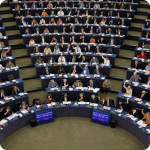
The High School Model European Union is an annual event for high school students, with this year's simulation taking place virtually via Microsoft Teams. The goal of the Model EU is to give high school students the opportunity to learn about the workings of the European Union through a hands-on simulation of a meeting of the European Council. Playing the role of presidents and prime ministers, students spend a day engaged in intense negotiations over current issues impacting the EU. Registration Deadline: Wednesday, October 27, 2021 Cost: $10/student More information and Registration: https://www.ucis.pitt.edu/esc/outreach/students/model-eu
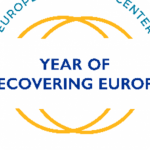
For the 2021-22 academic year, the European Studies Center has announced its annual programmatic theme: “Recovering Europe.” The December roundtable will discuss the COP26 summit and how it impacts the European Green Deal. Hosted in Glasgow, UN Climate Change Conference 2021 aims to build off of the Paris Climate Agreement. European Studies Center Director Jae-Jae Spoon will moderate this roundtable. Audience participation encouraged. #CoE

- Global Hub - 1st Floor Posvar

- Rafał Wnuk
Rafał Wnuk is a professor at John Paul II Catholic University in Lublin/Poland (KUL). In the last couple of weeks, Poland is constantly in the news for not keeping the European standards of the rule of law. However, this deformation of the country’s legal system is just one of the many issues Poles face today. The current government is also trying to implement its version of national history, silencing dissenting views and encroaching on the school and university curriculum. Professor Wnuk will discuss the role of history as a tool in building an increasingly authoritarian state. The talk is followed by a discussion moderated by Jan Musekamp (DAAD Visiting Associate Professor, Dept of History).

Inspired by the European Year of Rail, which shines a light on one of the most sustainable, innovative, and safest modes of transportation, and acknowledging the challenges we have all faced during the pandemic in traveling and forging new connections, the inaugural MEET EU Short Film Competition for U.S. Youth asks young people to create a short film (documentary or non-documentary) responding to the theme "Transatlantic Connections." Who is eligible? Anyone ages 18-35 who are resident of OR currently enrolled in a college or university in Pennsylvania, North Carolina, or Florida. In addition, recent alumni (age 35 or under) of Florida International University, University of North Carolina-Chapel Hill, or the University of Pittsburgh (all campuses) are also eligible, regardless of residency. APPLY BY NOVEMBER 28, 2021https://www.ucis.pitt.edu/esc/outreach/community/meet-eu-film-competition
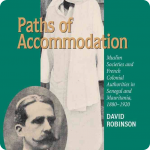
- Dr. Jean-Jacque Ngor Sène, Associate Professor of History and Cultural Studies, Chatham University
- Conover Room (Basement Floor of the) Mellon Administrative Building, Chatham University Campus, Woodland Road, Pittsburgh PA 15232-2899
Facilitated by Dr. Jean-Jacque Ngor Sène, Associate Professor of History and Cultural Studies, Chatham University “La République Française,” has been, for the last hundred years or so, a Muslim Global Power. The French, more particularly in Modern Times, have arguably stood in World History as the very top incubator-nation of theories, from that of the “Noble Savage” falsely attributed to Jean-Jacques Rousseau, to that of (Colonial Cultural) “Assimilation” formalized by, say, Arthur Girault, onto that of “Deconstruction” in post WWII times with Brother Jacques Derrida. One such new theory out of the Hexagon of Fading Glory is the controversial nébuleuse known as l’Islamo-Gauchisme (Islamo-Leftism???) fathered by Pierre-André Taguieff in 2002 from what we think we know. David Robinson’s Paths of Accommodation, Muslim Societies and French Colonial Authorities in Senegal and Mauritania, 1880 -1921 (Ohio University Press) straddles the tropes of Negotiation, Cooperation, Sabotage, Resistance, Jihad, and more importantly, for our chosen focus, Knowledge and Power Crystallized into (Symbolic) Sociopolitical Capital. Dr. Sène, will lead a discussion focused on the diversity of Arabic sources, archival sources from the colonial registries, oral ethnographic documents, and powerful folkloric testimonies from the early 1900s onwards. The book is a unique springboard for a re-evaluation of (Muslim) Civil Societies’ agency against neo-imperial forces of mass exploitation/oppression in our own times. This discussion is cosponsored by the African Studies Center and the European Studies Center at the University of Pittsburgh and Chatham University. Act 48 Credits available for PA teachers. For more information:https://www.cerisnet.pitt.edu/event/ceris-fall-book-discussion-for-educa...
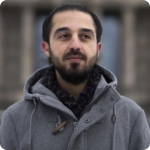
- Tareq Alaows
- Zoom
Please join us as we honor Tareq Alaows with the Johnson Institute’s Emerging Leader Award in recognition of his dedicated work to represent and advocate for underrepresented minorities and refugees in Germany. Tareq Alaows is a legal professional and political leader. Born and raised in Syria, Alaows came to Germany in 2015 as a refugee and has since become a German citizen. Alaows dedicates his career to advocacy and representation for refugee and minority populations in German politics, becoming the first Syrian refugee to run for German Parliament in 2021. Before his departure from Syria in 2015, Alaows worked as a law student, activist, and humanitarian worker for the Red Crescent. In Germany, Alaows founded a refugee political group called Refugee Strike Bochum and an advocacy organization called Seebrucke, which seeks to establish safe havens for refugees and speak against the criminalization of refugee rescue. Alaows also performs legal counseling for refugees in Germany. Each year, the Johnson Institute presents an Emerging Leader award to an individual still in the early part of their career, who is committed to the highest standards of professional leadership, compassion, ethics, and stewardship of our world and the people who share it. Past honorees have included President and CEO of Baltimore Corps Fagan Harris, Civil Rights Corps Founder and Executive Director Alec Karakatsanis, and Eco-Soap Bank Founder and Executive Director Samir Lakhani. We will honor Mr. Alaows in a virtual award ceremony, followed by a brief talk by Alaows and Q&A with the audience. This event is free and open to the public. We will be joined by the University Center for International Studies as a cosponsor for this event. We look forward to you joining us for the session! Registration required.

- Anthony Kruszewski/Beata Halicka
- Polish Nationality Room
Anthony Kruszewski is professor emeritus at The University of Texas at El Paso (UTEP). Beata Halicka is professor at Adam Mickiewicz University Poznań/Poland. During this conversation, we will discuss Beata Halicka’s biography of Anthony Kruszewski. Professor Kruszewski was first a Polish scout fighting in World War II against the Nazi occupiers, then a Prisoner of War and Displaced Person in Western Europe. He was stranded as a penniless immigrant in post-war America and eventually became a pioneer in the field of Borderland Studies. His life story is a microcosm of twentieth-century history, covering various theatres and incorporating key events and individuals. The discussion will be moderated by Jan Musekamp (DAAD Visiting Associate Professor, Dept of History).
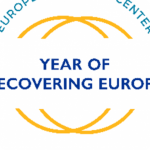
- Zoom
The effects of COVID-19 have been felt unevenly across Europe, a trend which continues into the recovery from the pandemic. In this panel, experts will discuss how these inequalities have been felt on an individual level and at the national level in terms of health and educational outcomes and economic impacts. Panelists: Holly Jarman, University of Michigan Julia Lynch, University of Pennsylvania Martin Myant, European Trade Union Institute Sylke Schnepf, JRC-European Commission Moderated by Jae-Jae Spoon, University of Pittsburgh Audience Participation is encouraged. #CoE

- 501 Cathedral of Learning
A Symposium in Honor of Dr. Irina Livezeanu This unique event brings together former students, colleagues, and associates of Irina Livezeanu’s, many of them specialists in the history, art, and culture of Romanian Jews or Romanian fascism, to discuss Jewish lives, creativity, and persecution during the Holocaust, and the memory of these earlier times. Held to celebrate Irina Livezeanu's retirement from the University of Pittsburgh, "Image and Memory: Jews, Antisemitism, and the Holocaust in Romania" deals with major themes that have occupied her writing and teaching over several decades. The event involves four roundtables that are open to the public. The first roundtable uses images and interviews to investigate Jewish lives before and after the Holocaust; the second—artwork and writings by Jewish members of Romania's twentieth century avant-garde movements; the third—propaganda photographs of Romanian fascists and the Holocaust; the fourth is a screening and discussion of director Radu Jude's 2018 feature film, "I do not care if we go down in history as barbarians," which deals with how contemporary Romanians remember the role of Romania’s Nazi-allied government in World War II. Announced by European Studies Center.
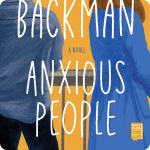
- ‹ previous
- 37 of 51
- next ›
